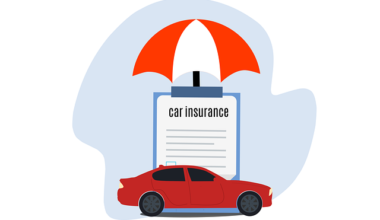When running a business that involves the use of vehicles, whether it’s a single company car or a large fleet of trucks, securing the right commercial auto insurance is vital. This insurance not only protects your financial assets but also safeguards your employees and your business operations. In this comprehensive guide, we will explore the nuances of commercial auto insurance, helping you understand what it is, why it’s essential, and how to choose the best policy for your business.
What is Commercial Auto Insurance?
Commercial auto insurance provides coverage for vehicles used for business purposes. This includes a wide range of vehicles such as cars, trucks, vans, and trailers. Unlike personal auto insurance, which covers vehicles used for non-business purposes, commercial auto insurance addresses the unique risks associated with business vehicle operations.
Why is Commercial Auto Insurance Important?
Legal Requirement
In most states, commercial auto insurance is mandatory. Businesses must carry at least the minimum required liability coverage to operate legally.
Financial Protection
Accidents can result in significant financial losses. Commercial auto insurance covers property damage, medical expenses, and legal fees, protecting your business from financial strain.
Business Continuity
With proper coverage, your business can continue to operate smoothly after an accident. Insurance can cover repair costs, vehicle replacement, and even rental costs, ensuring minimal disruption to your operations.
Employee Protection
If your employees drive company vehicles, commercial auto insurance provides coverage for their injuries and liabilities, offering peace of mind for both the employer and the employees.
Types of Coverage in Commercial Auto Insurance
Liability Coverage
This is the most basic type of coverage and is typically required by law. It includes:
- Bodily Injury Liability: Covers medical expenses, lost wages, and legal fees if someone is injured in an accident caused by your vehicle.
- Property Damage Liability: Covers the cost of damage to someone else’s property caused by your vehicle.
Physical Damage Coverage
This protects your vehicle from damage. It includes:
- Collision Coverage: Pays for damage to your vehicle resulting from a collision with another vehicle or object.
- Comprehensive Coverage: Covers damage to your vehicle from non-collision events such as theft, vandalism, fire, or natural disasters.
Medical Payments Coverage
Covers medical expenses for you and your passengers regardless of who is at fault in an accident.
Uninsured/Underinsured Motorist Coverage
Protects you if you’re involved in an accident with a driver who has insufficient or no insurance.
Hired and Non-Owned Auto Coverage
This is crucial for businesses that use rented vehicles or employee-owned vehicles for business purposes. It covers liability when these vehicles are used for business activities.
Gap Insurance
If your vehicle is totaled, gap insurance covers the difference between the vehicle’s actual cash value and the amount you owe on a lease or loan.
Factors Influencing Commercial Auto Insurance Rates
Type of Vehicle
Larger and specialized vehicles often cost more to insure due to the increased risk they pose.
Usage
The more a vehicle is used for business purposes, especially for long-distance travel or carrying heavy loads, the higher the insurance premium.
Driving History
A history of accidents or traffic violations can increase premiums.
Location
Areas with higher traffic density or higher crime rates can lead to higher insurance costs.
Number of Vehicles
Insuring multiple vehicles under a fleet policy can sometimes reduce costs per vehicle due to bulk rates.
Coverage Amount
Higher coverage limits and additional endorsements increase the premium.
Tips for Choosing the Best Commercial Auto Insurance
Assess Your Needs
Understand the types of vehicles you use, their usage, and the specific risks associated with your business operations. This will help in selecting the right coverage.
Compare Quotes
Obtain quotes from multiple insurance providers. Comparing prices and coverage options can help you find the best deal.
Check the Insurer’s Reputation
Research the insurer’s financial stability and customer service record. An insurer with a good reputation is more likely to provide reliable service and timely claims processing.
Look for Discounts
Some insurers offer discounts for safe driving records, bundling policies, or installing safety features in your vehicles.
Review Policy Exclusions
Understand what is not covered by your policy. This can help you avoid surprises during a claim.
Consider Deductibles
A higher deductible can lower your premium, but ensure it’s an amount your business can afford to pay out-of-pocket in the event of a claim.
Work with an Insurance Agent
An experienced agent can provide valuable advice and help tailor a policy that fits your business needs.
Top Commercial Auto Insurance Providers
Progressive Commercial
Known for its customizable policies and extensive coverage options, Progressive is a top choice for many businesses.
Nationwide
Offers a wide range of commercial auto insurance products with flexible coverage options and discounts.
State Farm
Known for its strong financial stability and excellent customer service, State Farm provides reliable commercial auto insurance.
The Hartford
Specializes in providing insurance for small businesses with tailored policies and strong customer support.
Travelers
Offers comprehensive coverage options and risk management services to help businesses reduce their insurance costs.
Conclusion
Commercial auto insurance is an essential investment for any business that relies on vehicles for its operations. It not only protects your assets but also ensures business continuity and compliance with legal requirements. By understanding the different types of coverage, factors affecting insurance rates, and tips for choosing the best policy, you can make an informed decision that safeguards your business against potential risks.
Remember, the right insurance policy is not just about the lowest price but about the most comprehensive coverage that meets your business needs.




